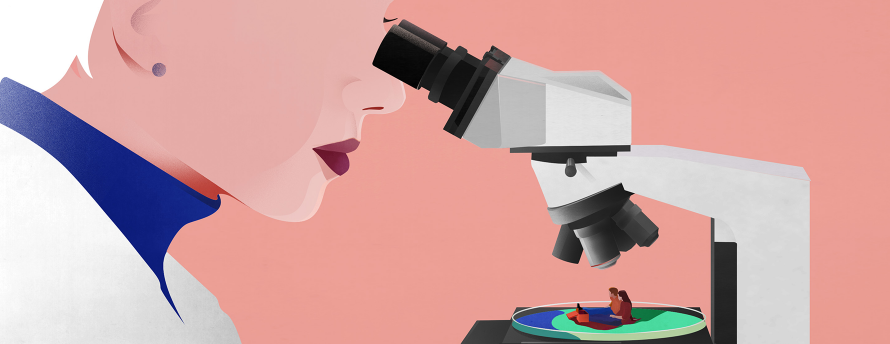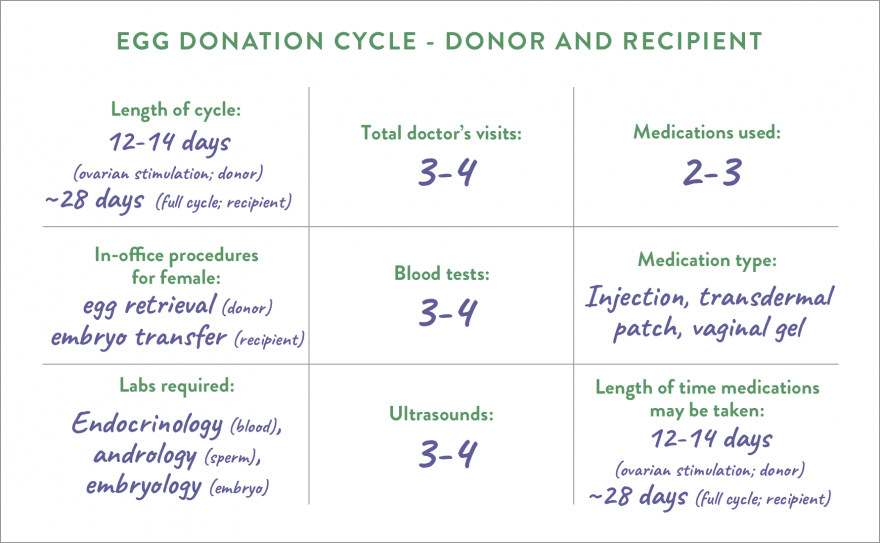My Fertility Story provides customized fertility and family-building resources to support you as you navigate your unique path to parenthood.
MAKING THE DECISION TO USE DONOR EGGS
* Data from the SART 2020 Preliminary National Summary Report, accessed July 13, 2022.
WHAT WOMEN CAN EXPECT
If you’re a female interested in conceiving with a donor egg, testing and physical examinations will be performed to assess your body’s ability to have a successful pregnancy. These may include:
- Uterine procedures to check for infections and other issues that could impact pregnancy
- Practice cycles to ensure your body will react appropriately to hormonal therapy
- Trial transfers to test how easily a catheter carrying an embryo can be passed through your cervix
- Blood tests to ensure there are no compatibility issues between your blood type and that of the egg (or sperm) donor
- Pretreatment counseling to help you understand cycle expectations, risks, and success rates, as well as the mental, emotional, and social aspects of using a donor
WHAT MEN CAN EXPECT
If you’ll be fathering the baby, assessments will be done to ensure your health, including:
- Semen analysis to rule out any potential fertility issues
- Blood tests to ensure there are no compatibility issues between your blood type and that of the egg donor or recipient
HOW DO I KNOW THE DONATED EGG IS HEALTHY?
Typical egg donors are younger than 35 years old, with laboratory results that show normal fertility and good egg quality. Screening of egg donors, whether known or anonymous, is important. Egg donors participate in comprehensive screenings such as:
- Medical history
- Family history of birth defects or genetic diseases
- Psychological testing
- Sexually transmitted disease (STD) testing, including HIV, hepatitis, and herpes
- Physical examination and laboratory testing to assess fertility
HOW AN EGG DONOR CYCLE WORKS
WHAT ARE THE CHANCES OF MULTIPLE BIRTHS USING DONOR EGGS?
Because egg donors are typically younger, pregnancy rates tend to be higher—leading to a 20% to 25% chance of multiples. Ask your doctor if the number of embryos transferred will be limited to reduce this risk.






